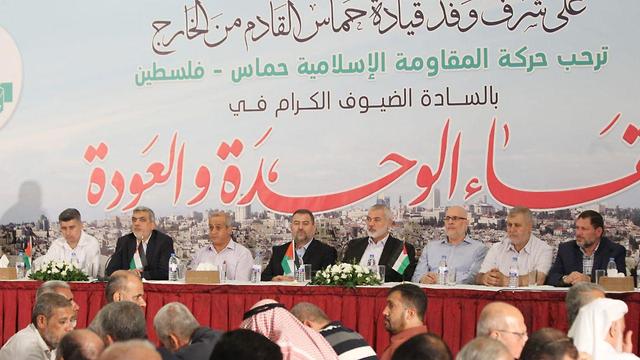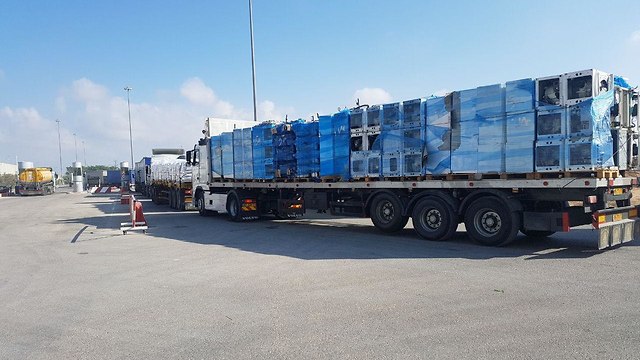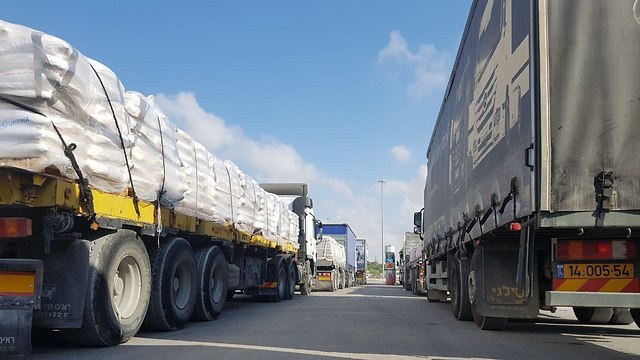

The scale of arrangement between Israel and Hamas
Op-ed: Latest round of talks with Hamas in Cairo indicates that a proposal has already been accepted by Hamas and the meetings in the Egyptian capital are just a formality; However, negotiations can stop at any moment, so both sides prepare for a large-scale military operation.
In the Middle East, nothing is incidental. If a prominent Hamas leader Saleh al-Arouri is in Cairo for a second time in two weeks, if all senior members of Palestinian factions in Gaza left in a rush for the Egyptian capital on Tuesday, if hours before their arrival the defense minister decided to reopen the kerem Shalom border crossing, if a number of incendiary balloons launched into Israel is close to zero, then it can be assumed with a certain degree of certainty that, besides the threats being issued by both sides, something concrete is happening.
One Palestinian source, familiar with the details of the proposed arrangement, said that everything has already been agreed upon and the current round of meetings between Hamas leaders is a matter of formality.
"If they already held a meeting with the factions in Cairo, then the assumption is that Hamas has already agreed to the ceasefire agreement. The meeting is a final stage of the proposal," asserted the source.
In other words, Hamas has already informed Egypt of their acceptance of the ceasefire arrangement and the meeting with the rest of the Gaza factions is only a formality, in order for Hamas to get a seal of approval and not be the only signatories of the agreement.
How serious is this? Here is a small example: Among those who attended the meeting in Cairo, were leaders of the Popular Resistance Committees. Their name may not ring a bell as far as the Israeli public is concerned, but it is only because everyone knows them by an alternative name given to them by the IDF—”the recalcitrants,” and even if they were asked to attend the discussions in the Egyptian capital then the peace talks efforts have shifted into high gear.
The arrangement with Israel is not the only issue on the agenda. An attempt to re-implement the reconciliation agreement between Hamas and Fatah is being pursued as well. The proposal by Egypt and UN Middle East envoy Nickolay Mladenov is particularly ambitious, and its success depends on many regional players and aspects—which is what makes it susceptible to failure. There are too many interests, egos and bad blood.
It is enough that Mahmoud Abbas—whose irritability and entrenchment in his positions have become his dominant qualities—decides that he will continue to impose sanctions on the Gaza Strip, and the possibility of a wide scale arrangement is put in jeopardy.
Arrangement have a spectrum—from limited to wide scale. The options are on the table and in the end Israel and Hamas will have to choose a scale of the arrangement and the compromise that they are prepared for. The more comprehensive the arrangement will be, the longer the quiet along the southern border will last.
Only five days ago hundreds of rockets and missiles flew across the Gaza border in both directions, and today the ceasefire discourse is more dominant than ever. This sharp transition is a result of typical negotiations in the Middle East, when the parties involved always make a point to remind each other that every coin has two sides.
If the ceasefire negotiations fail, then there will probably be no escape from a large-scale military operation in Gaza, but in the meantime Hamas and Israel want to reach an agreement without entering a war.
However the talk of calm can quickly turn into another escalation so the two sides continue to display their preparedness. The Hamas leadership in the Gaza Strip has lowered its public profile and Israel has deployed Iron Dome batteries even in the center of the country.


















